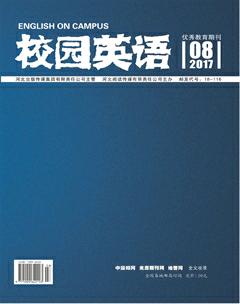The Criteria and Basic Principles in National Foreign Language Testing and Assessment System in China
On the Second International Conference on Language Testing and Assessment sponsored by Ministry of Education (MOU) of China and Zhejiang University on November 11-13, 2016, Associate Minister of MOU LIN Huiqing stressed “learning languages of other countries now is an important approach to mutual communication, learning from each other, collaborative development, and accommodating each other”, and she mentioned that in September, 2014, the State Council of China issued “The Suggestions on Deepening the Reform of College Entrance Examination and Recruitment”, in which “ to promote the build-up of the testing and assessment system of foreign language proficiency” was firstly clarified from the national level.
To promote this, we need to pay much attention to the following criterias and basic principles:
I. The key is how to use the Scales of language proficiency
It is a milestone to design the Scales of English language proficiency in China. But similar to other reforms like Gaokao, it is not easy to implement the scales in foreign language teaching, learning, and assessment among such a large population and vast land. There will be a gap between “existing” and “implementing” of the Scales. It might take effect in some regions even after the Scales have existed for a long time.
II. Design Examinations based on SCALES
SCALES plays an important role-a basic reference for all foreign language examinations. To design examinations based on SCALES may guarantee a systematic and scientific examination. Take CET for example, we have spent much time and money on it but it is far from satisfactory. One of the most important reasons is the lack of the common and continuous reference for foreign language teachers, learners, users and assessment specialists.
III. Design SCALES and Examinations based on relevant Researches
Vision guides action and direction determines the future. We need carry out a large number of relevant researches before we design SCALES or examinations. Both have their own regulations. All actions should be based on relevant researches. We strongly suggest that more and more conferences and seminars on this hot issue be sponsored by the governments, associations and outstanding scholars or researchers.
IV. Furtherly classify the English Proficiency at the Breakthrough level
English is the most influential foreign language to most language learners and users in China. Frankly speaking, most are English language beginners. Even so, each individual presents different English proficiency. For example, one may be good at speaking, another may have a good command of writing. We need to furtherly classify the English Proficiency of each individual learners and users to motivate their interest.
V. The awareness of the interdependence between language and culture
All foreign language learners and users need be aware of the interdependence between language and culture. Both SCALES or examinations need cover the culture that the foreign language presents and contains. Teachers should teach the students to express their ideas in the way foreigners accept.
*四川省社科規划办“2016年外语专项”编号:SC16WY028。
作者简介:侯光海(1978-),男,西南科技大学讲师,西班牙马拉加大学与澳大利亚昆士兰大学联合培养博士(语言学、文学及翻译专业),地中海研究会、协作式教育国际研究会会员等。主研方向:外语教育教学法与国际高等教育对比研究。

